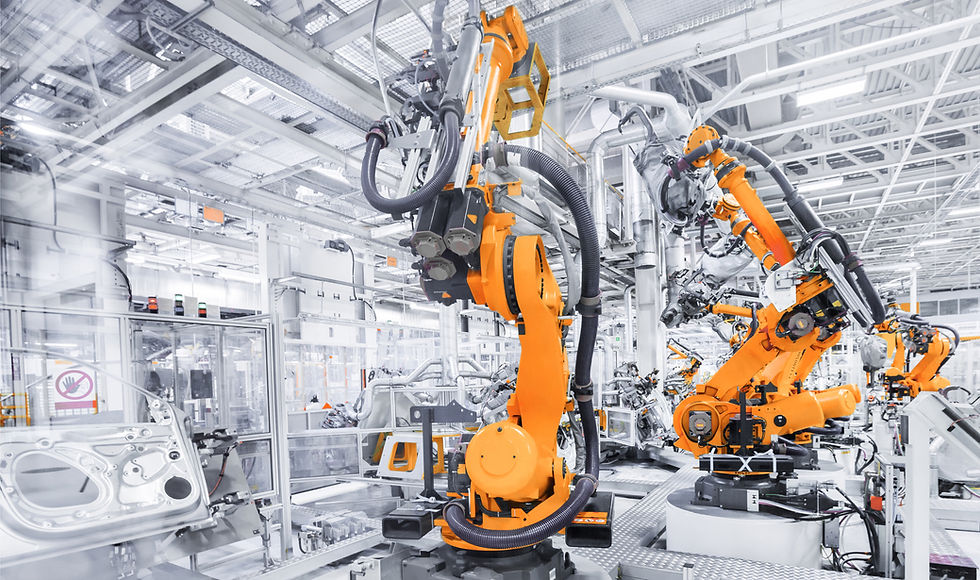The Corporate Conundrum: Should Big Businesses Shoulder the Blame for Economic Inequality?
- Marathon Capital Investments

- Aug 26, 2024
- 4 min read
Article written by Hugh Lang
Alright, let’s get one thing straight: we live in a world where big corporations are running the show. They’ve got the money, they’ve got the power, and some folks say they’ve got a whole lotta blame to carry for this mess we call economic inequality. Now, before you go jumping to conclusions, let’s break this down, Samuel L. Jackson style. We’re talking about some real talk, no sugar-coating.

The Case for Corporate Accountability: Are the Giants Too Big to Care?
Picture this: a handful of corporate giants stacking cash like it’s going outta style, while everyone else is scraping by. You think that’s fair? Hell no! The critics are loud and clear on this one—they say these fat cats are hoarding wealth and crushing the little guy under their boots. Here’s why they think these corporate behemoths ought to be held accountable:
1. The Wealth Gap Dilemma: Let’s call it like it is—these corporations ain’t just making money, they’re vacuuming it up from everywhere. Wage suppression, tax dodging, and gobbling up smaller companies—these tactics ain’t just business as usual, they’re creating a damn chasm between the rich and the rest of us. The critics? They’re fed up, and they say it’s time these corporations pay their fair share.
2. The Ethics of Corporate Social Responsibility: Now, let’s talk about CSR—Corporate Social Responsibility. Sounds fancy, right? But it’s really just about doing the right thing. Pay your workers fair, give back to the community, don’t be a greedy bastard. That’s what the advocates are shouting. They’re saying CSR ain’t just some nice-to-have, it’s a damn necessity.
3. Public Infrastructure, Private Gain: These big corporations love to take, take, take—from public roads, schools, and everything else society offers up on a silver platter. But giving back? That’s a whole different story.
The critics are saying, “Hey, if you’re gonna take from the public, you better give back more than just the bare minimum!”

4. Influence and Power: Let’s not kid ourselves—these corporations have more influence than they know what to do with. They’re shaping policies left and right to suit their needs. The folks on this side of the argument are saying it’s high time we start holding these power players accountable, making sure they don’t keep tipping the scales in their favor.
5. The Long Game: You ever heard of sustainable growth? That’s what these advocates are talking about. They say if we keep letting corporations get away with their antics, the whole damn economy’s gonna suffer. Holding them accountable ain’t just about justice—it’s about making sure we all survive and thrive in the long run.
The Case Against Corporate Accountability: Is the Free Market Really to Blame?
But hold up! There’s another side to this coin, and they ain’t staying quiet either. These folks say that blaming corporations for economic inequality is barking up the wrong tree. Here’s why they think the blame game needs to stop:
1. The Profit Motive: Listen, these companies are in it for one reason—profit. That’s the game in a capitalist system, baby. And sometimes, inequality is just a side effect of how the market rolls. These folks argue that holding corporations accountable for every damn thing that goes wrong in the economy is just plain unfair. And worse—it might kill the goose that lays the golden egg.
2. Government’s Role: Now, here’s a thought—maybe, just maybe, it’s the government’s job to tackle inequality. After all, they’ve got the power to tax, regulate, and spread the wealth around. These folks are saying, “Don’t point the finger at corporations—point it at the folks in charge who can actually do something about it.”

3. Job Creation and Economic Growth: Big corporations are job machines. They’re out here creating opportunities, putting food on the table for millions of families.
Critics of this whole accountability thing argue that if you start tying corporations’ hands, they’re gonna stop creating jobs, and then where will we be? Worse off than before, that’s where.
4. Voluntary CSR vs. Mandated Accountability: Sure, Corporate Social Responsibility sounds nice, but should it be forced? These folks say hell no! They believe CSR should be a choice, not a mandate. Let the market decide how corporations give back, and you’ll see some real innovation, not just checkbox philanthropy.
5. Global Competition: This ain’t just a local game, folks. Corporations are competing on a global stage. You start holding them to some impossible standards here at home, and you better believe they’re gonna get their asses kicked by competitors abroad. That means lost jobs, lost market share, and a weaker economy for all of us.
The Bottom Line: Can We Find Common Ground?
So, where does that leave us? On one hand, you’ve got folks saying corporations need to step up and stop making life harder for the rest of us. On the other hand, you’ve got people who believe that holding corporations accountable for everything under the sun is a fast track to nowhere.
But here’s the real deal: maybe the truth lies somewhere in the middle.
We need to find a way to keep corporations in check without choking the life out of the economy. It’s about balance, people. It’s about making sure the big players don’t steamroll the little guys while still letting the market do its thing.
Let’s face it, this debate ain’t going away anytime soon. But one thing’s for sure—we better figure out how to make this system work for everybody, or we’re all gonna feel the heat.




Comments